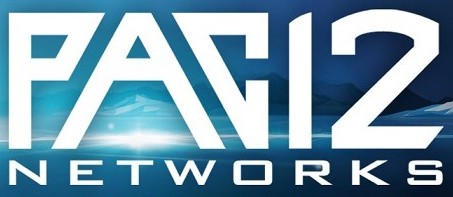On so many levels, Pac-12 Commissioner Larry Scott has brought fresh thinking and forward-looking leadership to the West’s power conference. This was never more apparent on Wednesday morning in Los Angeles than when Scott talked about his league’s efforts to study — and fund — ways to better address the problem of head trauma among athletes. Here’s a tweet with an embedded video clip:
ICYMI: The Pac-12 is investing millions into student-athlete health and head injury research. http://t.co/1VKnPXVspT
— Pac-12 Network (@Pac12Network) July 23, 2014
Scott’s tenure as Pac-12 commissioner has certainly been a net plus. Yet, the good things Scott has done — and is doing — will quite understandably be forgotten, due to the persistent problems he has failed to solve, problems that were brought back to the surface on Wednesday.
First of all, DirecTV isn’t about to carry Pac-12 Networks on its own. A merger with AT&T is the only way that might happen, and even then, there’s no guarantee:
If you're hoping DirecTV adds Pac-12 Network anytime soon, good luck. Larry Scott all but ruled out a deal until AT&T buyout completed.
— Dan Greenspan (@DanGreenspan) July 23, 2014
Two other problems surfaced for Scott on Wednesday: First, his speech ran long, and a few other people noticed what I did on the P-12 Net broadcast:
You can actually hear people talking over Larry Scott. People have officially stopped caring about this speech
— Kane "The Conqueror" Webb (@FightOnTwist) July 23, 2014
When a speech runs long and on-site journalists get bored, progressive initiatives regarding head trauma don’t make as much of a splash in the news cycle. That’s how good deeds get overlooked.
Second, the format for Pac-12 Media Days was a rugby scrum surrounding the coaches, as seen in this photo from veteran Pac-12 football writer Lisa Horne:
Somewhere in there is Steve Sarkisian pic.twitter.com/uXzQkhDEni
— Lisa Horne (@LisaHorne) July 23, 2014
Pac-12 Networks should have put a camera on these live events, but it instead opted to put its on-air talent outside the media room, doing friendly chats with coaches and players that contained comparatively minimal news value.
Viewers on Pac-12 Networks were not impressed, to say the least… and rightfully so:
.@Pac12Networks Should just be honest and say that "these coaches will be interviewed by our hosts". You aren't broadcasting Media Day
— King Sundodger Denali (@Bnnace) July 23, 2014
With daytime baseball as a viewing option, there was little incentive for viewers in Pac-12 markets and anyone who gets Pac-12 Networks to tune in in the first place.
*
You might think this last issue is not very significant, but then consider what the Pac-12 ran into last year: namely, a problem with Fox Sports and Fox Sports 1 in terms of getting enough of its bigger games into prime viewing windows. The preponderance of late-night (Eastern time) kickoffs on Saturdays reduced the league’s visibility, and Scott wants to have more games in the middle of the day. This is a proper response to the Pac-12’s situation, partly because Heisman Trophy candidates Ka’Deem Carey and Marcus Mariota weren’t even invited to New York as finalists last season, but mostly because the advent of the College Football Playoff makes it important for Oregon and Stanford games to be seen when voters in the Eastern and Central time zones will likely be awake.
Visibility of the product is essential for the Pac-12 on many levels. Building credibility on a national level is important, but getting the Pac-12’s product in front of eyeballs in its local markets is the first priority. Pac-12 fans who have DirecTV are upset enough as it is, so it’s urgent for Scott to make improvements in other areas in order to prevent negative perceptions about the league from spreading.
The Pac-12 Networks’ shoddy and misguided coverage of the first half of Pac-12 Media Days — with live coaches’ press conferences being ignored in favor of more packaged programming that easily could have been tape-delayed and aired later in the day — will reinforce every unpleasant assessment of Scott’s tenure.
Leadership on head trauma (something that really matters on a profound and far-reaching scale) should be the news-cycle takeaway for Larry Scott on this Wednesday evening, with Pac-12 Media Days at the midway point. Instead, poor TV coverage; a bad media-day setup with the rugby-scrum pressers; and the lingering DirecTV debacle are what a lot of fans in the West will remember about July 23, 2014.
This is how good deeds get overlooked. Larry Scott would do well to reconsider not his long-term vision, which is on track, but his and his TV network’s day-to-day decisions, which have continued to get in the way of grander aspirations.

